With Bluetooth connectivity and Apple HealthKit integration, the BACtrack Mobile Smartphone Breathalyzer for iPhone brings the "quantified self" trend to a new category: alcohol consumption.
The BACtrack Mobile is a tiny handheld accessory that can provide users with their blood alcohol content. While it's been around for a few years with both iOS and Android compatibility, the device's accompanying application was recently updated to support the HealthKit tools introduced in iOS 8.
For this review, AppleInsider was provided with a BACtrack unit, which retails for $130. The company advertises that the device features "police-grade technology" for measuring how much alcohol a user has consumed.
Before we go any further, the obvious must be stated: Do not drink and drive. The BACtrack, or any other breathalyzer, does not excuse poor decisions.
Even if you're under the legal limit, impaired driving can be dangerous and irresponsible. Tools like the BACtrack should not be used as justification for getting behind the wheel after having a few drinks.
With that said, let's get on with the review.
Hardware
Inside the box, the BACtrack comes with the unit itself, three swappable (and optional) mouthpieces for cleanliness, a carrying case, a micro USB cable for recharging, and a user manual.
The BACtrack is plastic and small, and easily pocketable. Inside, it features what the company calls the "Xtend Fuel Cell Sensor," which is claimed to offer reliable BAC results with "police-grade accuracy," measuring anywhere from 0 percent to 0.400 percent.
In our tests, the integrated lithium ion battery offered plenty of uptime to get the unit through one night of testing, and likely many more. The device also has an auto-off feature when it is idle.
There is only one button on the front side of the unit to turn it on, just below the opening where a user must exhale to check the blood alcohol content of their breath.
In a unique twist, the hardware features integrated Bluetooth to connect to a smartphone.
While using the breathalyzer requires a connected smartphone, the hardware does provide a satisfying, audible "click" when the user has exhaled enough for their breath to be tested. This helps to make the unit extremely simple to use.
Unfortunately, the BACtrack doesn't have any display, which means users cannot find out their blood alcohol levels without a connected smartphone. Fortunately, we found that the iPhone app exceeded our expectations.
iPhone integration
Initially, we were skeptical about the need for Bluetooth connectivity in a breathalyzer. But after using the BACtrack and accompanying app, the value became clear.
Rather than just showing your blood alcohol level, the BACtrack app goes a few steps further to provide detailed information and estimates. For example, upon determining your BAC, the app will offer an estimate as to how long it will take for the user to become 100 percent sober, in what BACtrack calls "ZeroLine technology."
Users can also tag their tests with information such as photos, notes and drink logs. With this, users can more accurately determine how many drinks get their body to a certain blood alcohol level.
We tested the BACtrack with an iPhone 6, but it's also compatible with the iPhone 4s and newer, iPad 3 and newer, all iPad mini models, and fifth-generation iPod touch and newer.
Users must wait 15 minutes without drinking or eating anything before using the BACtrack to test their blood alcohol level. This is because residual alcohol within the mouth, or other materials, could inaccurately skew the results.
Upon opening the app, it immediately begins looking for the BACtrack hardware. Once turned on, the unit connects and begins initializing almost immediately.
When a user selects within the app to begin a BAC test, the hardware prepares with a "warming up" indicator. During this short period, users can guess what they believe their current blood alcohol level is, to be compared to the final result.
The next screen informs users to begin breathing in, in preparation to exhale for the test. And when the iPhone alerts the user to begin exhaling, a handy counter shows the completion level, joined by the aforementioned hardware "click."
After a few seconds of analyzing, the user's blood alcohol content is displayed. Here, users can modify their results with custom information about drinks, photos, location and more.
The process is quick and simple. And while we could not test the accuracy of the unit with another BAC measuring device, the results we received were consistent and seemed generally accurate based on our alcohol consumption levels.
The results also inform users about their current state of inebriation and what it means for their body. For example, once our BAC level became a 0.098 — which is above the legal limit for operating a motor vehicle — the app accompanied it with a message stating: "Your judgment is impaired and motor skills debilitated."
Users can dive a little deeper and receive more information about the common effects of alcohol, complete with warnings about drinking and driving.
The BACtrack app also lets users store their readings within the HealthKit app. While we are unaware of any other applications that might read or utilize this information, users can know that the option is there — Â blood alcohol content is stored under the "Results" menu of the iOS 8 Health app.
The time-to-sober estimates are also welcome and valuable information, and could allow users a greater understanding of how their body processes alcohol.
Going social
The capabilities and performance of the BACtrack hardware and accompanying app were enough to impress, but unfortunately the app goes a few steps too far, in our view. In order to view detailed previous readings, we had to enable a "Store My Data" function. We were also required to register with our email address to receive a one-year warranty.
With a BACtrack account, the company stores data on its servers, including past reading history, and also gives the ability to transfer the data to a new device. Enabling data storage also allows users to tag drinks, add photos, and add notes to each reading.
We wouldn't consider ourselves to be paranoid, but storing such potentially sensitive health data in the cloud — and requiring that storage for some features — feels like a few steps too far. Security conscious users should take note and adjust the settings accordingly, but thankfully the cloud storage is disabled by default.
Those who want to share everything can post their reading on Facebook or Twitter, or send via text message, if they so choose.
There's also an option — which is also disabled by default — to share readings anonymously. Doing so shares blood alcohol level, location, photos, tagged drinks and more, but does not access notes or Facebook information. We do question how "anonymous" specific location data can actually be, though.
This data also allows BACtrack to share an anonymized set of information with users about drinking habits. For example, upon completing a test, the BACtrack app lets us know how our blood alcohol level compares to other users on that particular day of the week.
To us, many of these features seem excessive, though we concede that a generation of users who share virtually everything online may find these capabilities to be fun.
It also seems likely that irresponsible users who share too much could find themselves in trouble, legal or otherwise, thanks to their excessive social media habits. To some, this might be an unintended public service side effect of the BACtrack and its excessive social functions.
Conclusion
Security and sharing concerns aside, the BACtrack works as advertised. It's portable and convenient, it works fast, and the data it provides could be valuable to many users.
We didn't expect the iPhone integration to be such an integral part of the product, with detailed information and estimates that go well beyond just a simple blood alcohol percentage readout.
Still, it would be nice if the unit included a small LCD display in the event that a smartphone isn't available. But that's just a minor blemish for what is otherwise an excellent product.
And while the social sharing features are entirely optional, some features cannot be accessed without cloud storage enabled. With recent celebrity picture leaks and other high-profile cloud data hacks on the mind, users should be aware before they buy.
For responsible drinkers who aren't concerned about the privacy of data collected by the BACtrack, it's an easy recommendation. With an MSRP of $130, it can often be found for even less than that, which is a competitive price for an accurate breathalyzer.
The Bluetooth-based capabilities of the device found through the accompanying iPhone app only take this to the next level. If your quantified self must be measured at all costs, please do so responsibly.
Score: 4.5 out of 5
Pros:
- Portable, lightweight, and easy to use
- Connected app provides detailed and potentially valuable information
- Users can input drinks consumed and other notes to see how their body processes alcohol
Cons:
- Requires an iPhone (or other connected smartphone) to be used at all
- Cloud storage and sharing functions are not for the privacy conscious
Where to buy
The BACtrack retails for $130, but is currently
on sale for $99.99 at Amazon with Prime shipping. It can also be purchased direct from the manufacturer for the same price. The accompanying iPhone app is a free download from the iOS App Store.
 Neil Hughes
Neil Hughes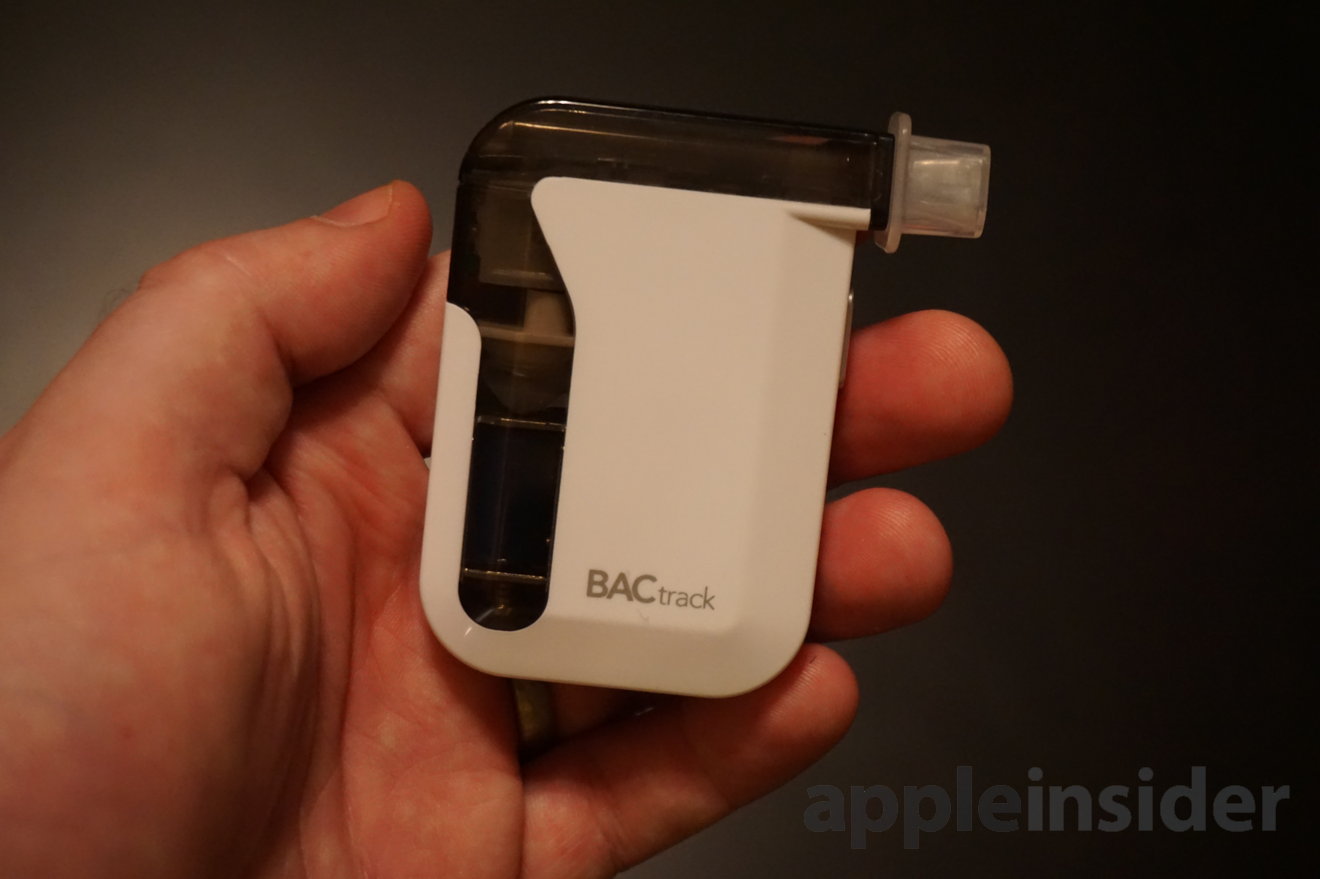
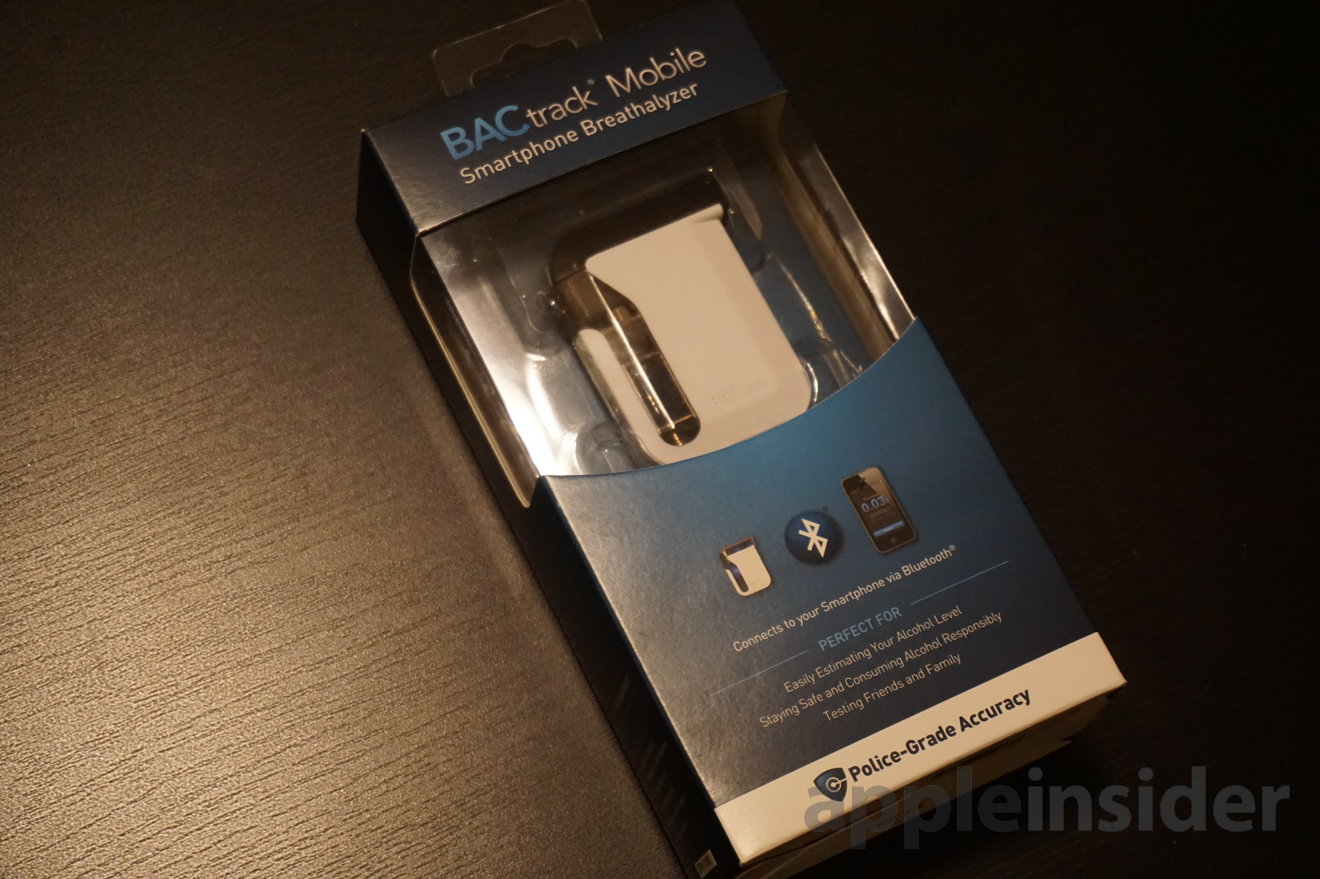
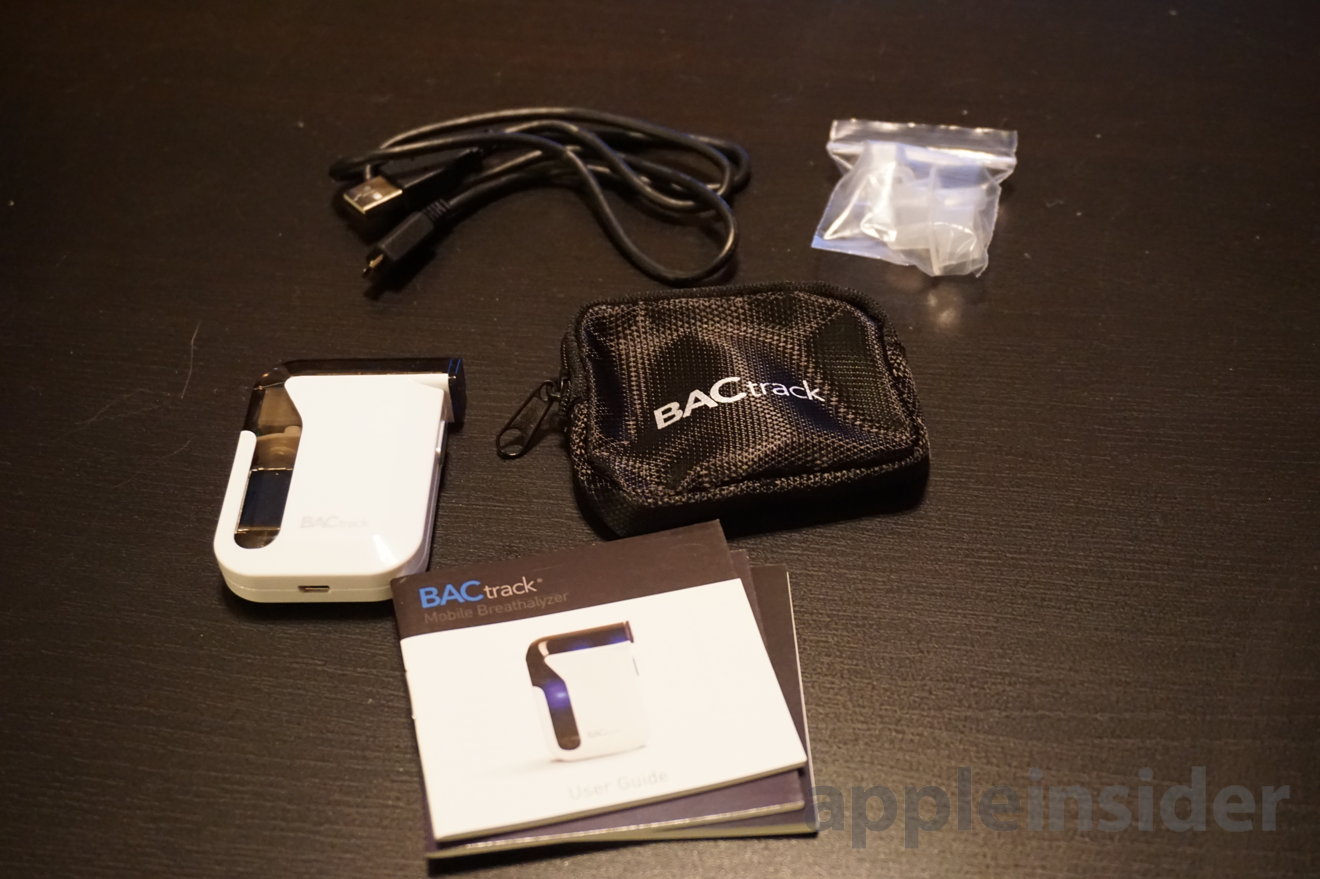
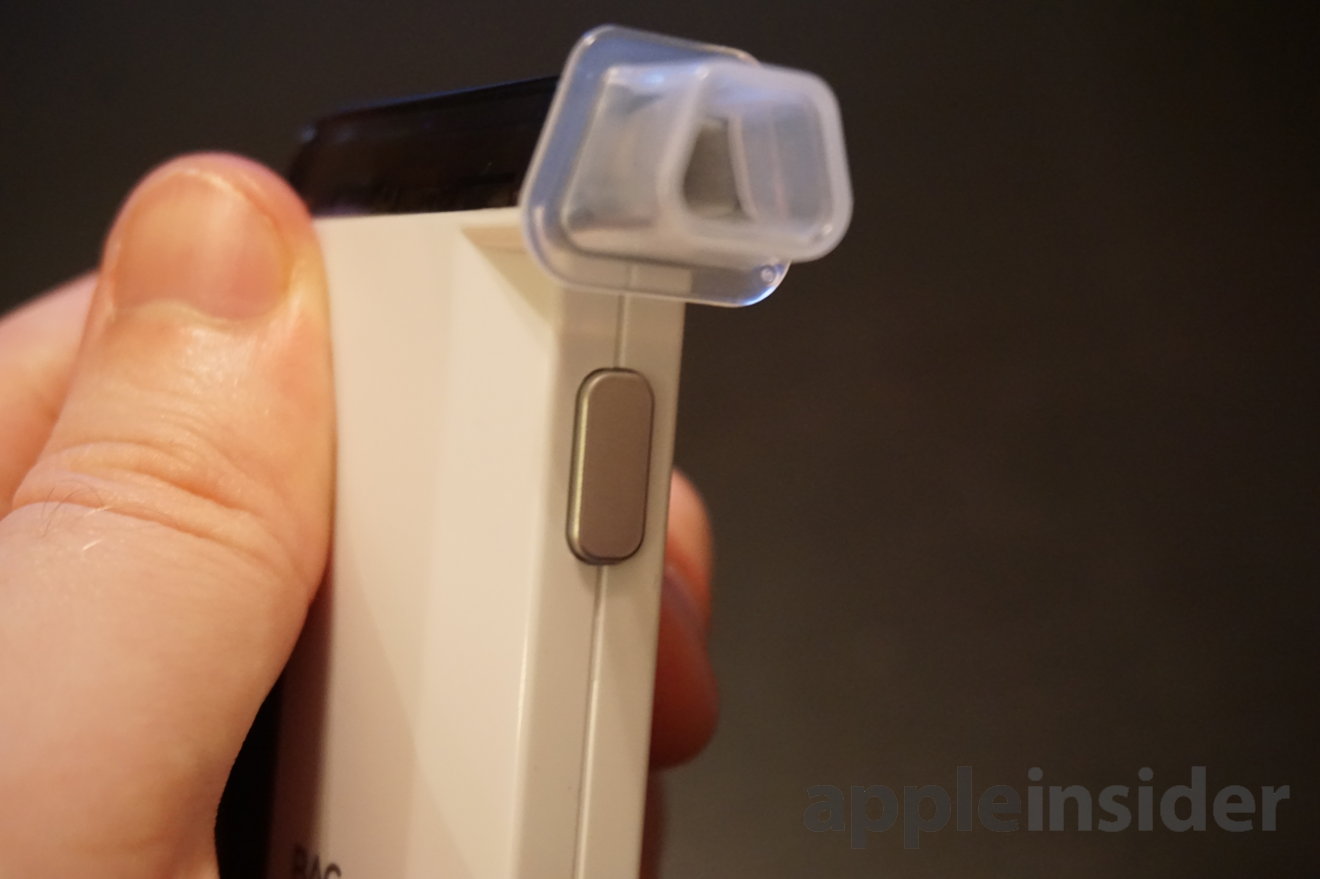
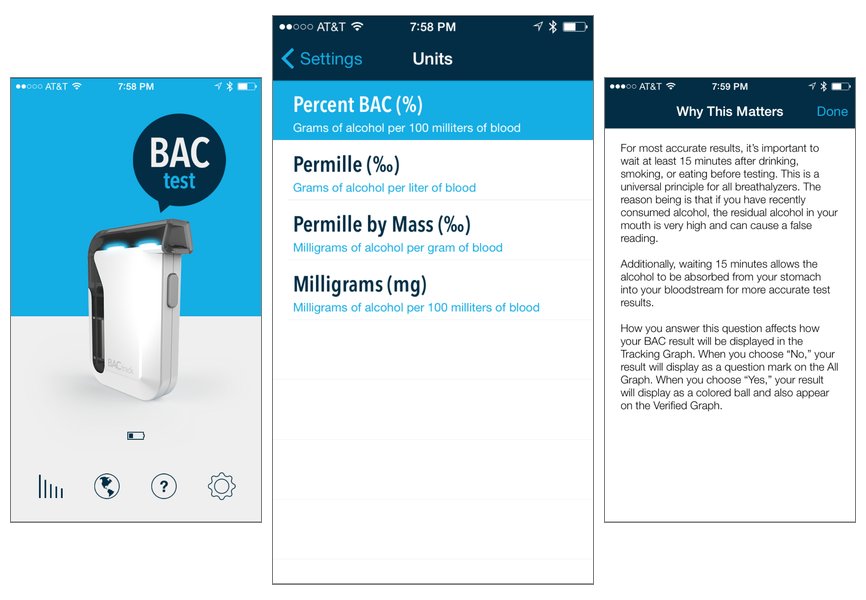

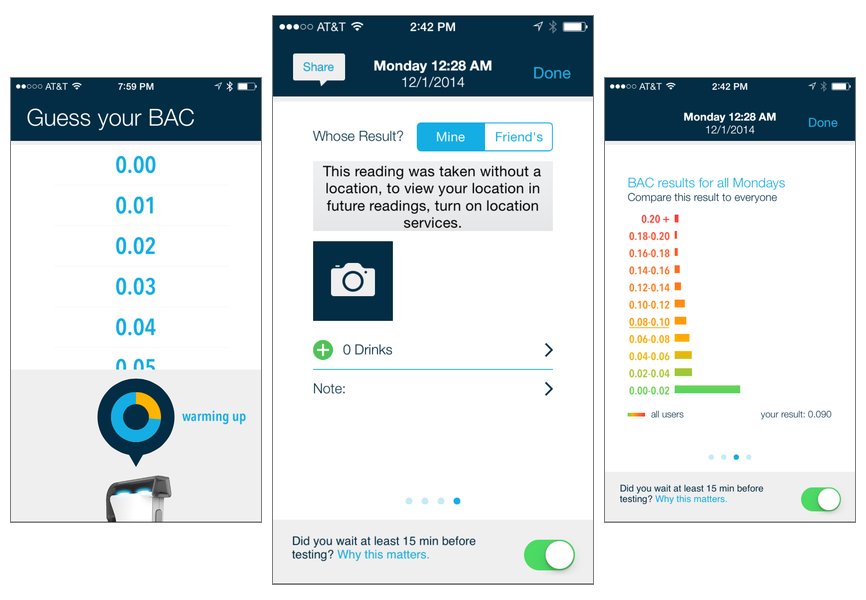
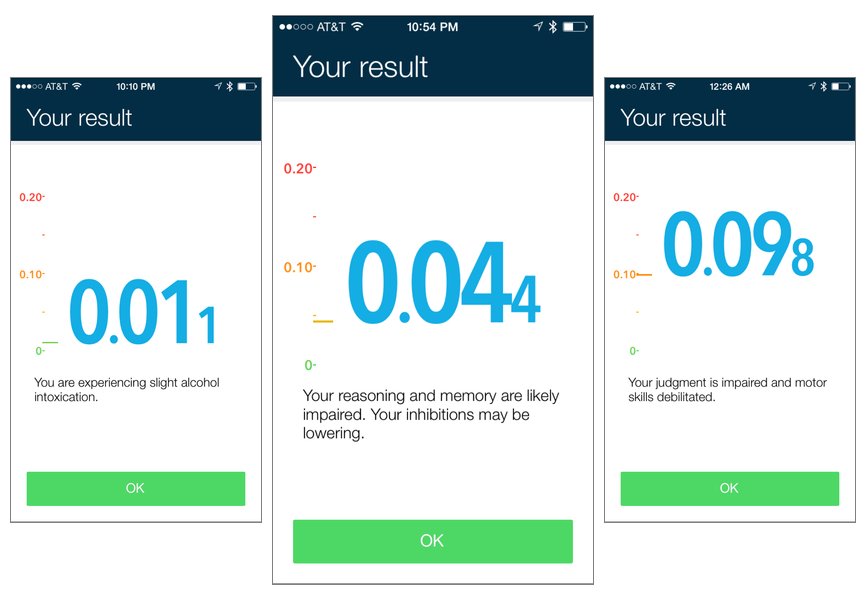
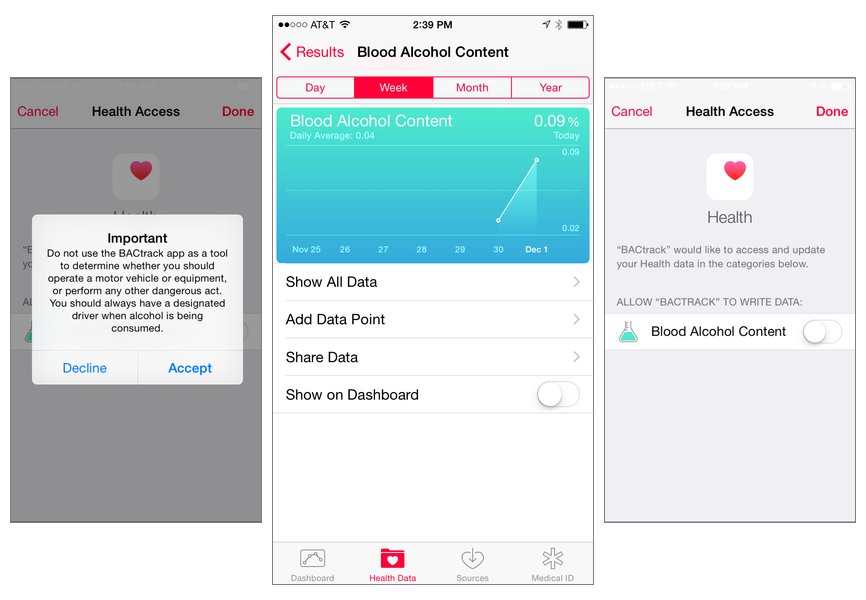
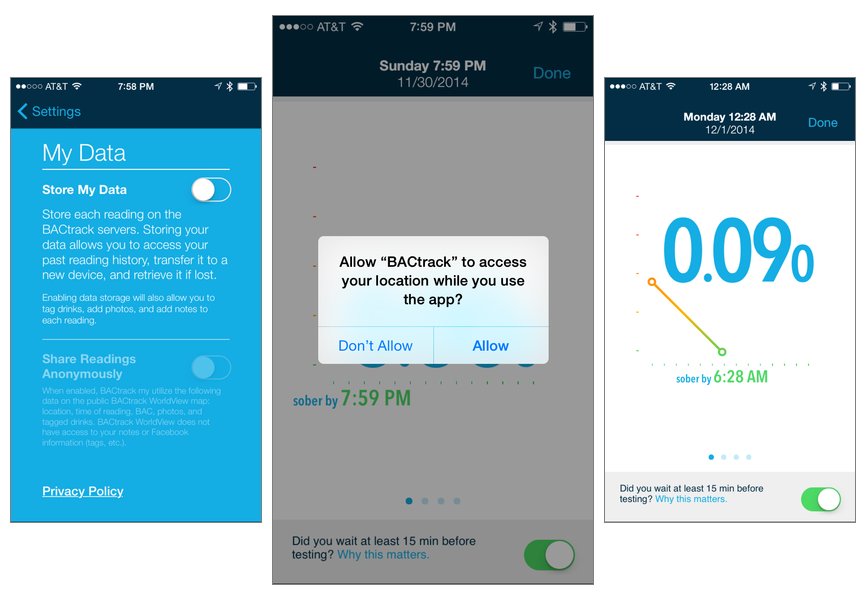



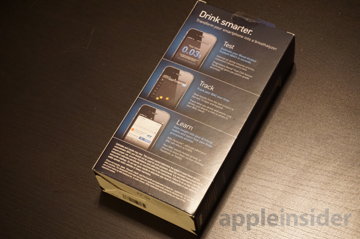
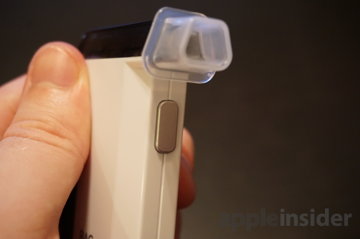
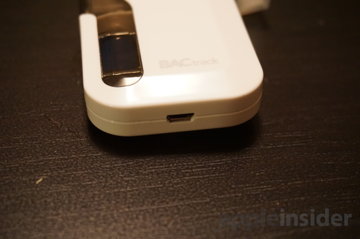
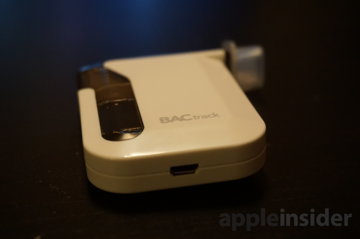
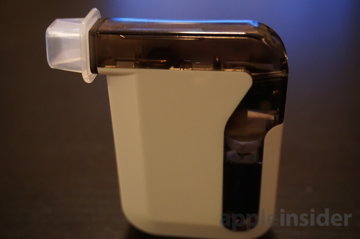
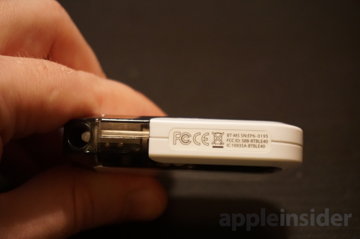
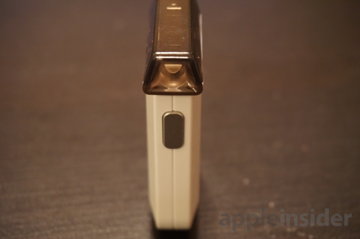







-m.jpg)






 Brian Patterson
Brian Patterson
 Charles Martin
Charles Martin


 Malcolm Owen
Malcolm Owen
 William Gallagher
William Gallagher
 Christine McKee
Christine McKee
 Marko Zivkovic
Marko Zivkovic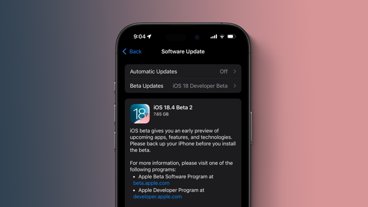







13 Comments
[quote name="AppleInsider"] Before we go any further, the obvious must be stated: Do not drink and drive.[/quote] Just review the product. No life advice.
Integration with Untappd? :-)
Does this device let you know at what time one will fall under the legal limit in the event that one has got bladdered? There's no need to wait for one's alcohol to fall to zero. That would be really useful. And also, whether it can be customised for a particular country with alarms.
The most important aspect of this device was never talked about: accuracy. The only statement about its accuracy is a claim from the manufacturer, which isn’t evaluated against a professional unit. Without a test against professional equipment verifying its accuracy, the value is questionable at best, and a discussion of all the features is a waste of time. When writing reviews, the main purpose of the product — especially one that quantifies such important information — should be covered at the very least. Without this covered, the entire article becomes as suspect as a Beats headphone review that discuss the style and comfort without disclosing their lackluster fidelity.
The review does not mention the personal parameters (weight, gender, for example) that would need to be known to estimate alcohol metabolism rates.